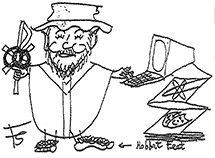I was preaching: Luke Chapter Six verse 29: “To him that smiteth thee on the one cheek, offer also the other”.
A teen age voice rang out: “What jerk said that?”
The sermon was about forgiveness, and it had a good beginning in this remark! Because the Gospel of Jesus is a scandal, foolishness, to those who do not believe. And what we believe in is forgiveness, one of the Equations of Love:“Forgive us our sins, as we forgive those who sin against us”
(OR: “as we have forgiven those who sin against us”)
There is certainly some equation here, though there are three parties to the formula. We are asking God to forgive us: that equation is not apparently balanced, since, usually, we do not believe we have to forgive God, just God - us. However there are some who are angry with God, who need to forgive God!
Look at the human parties to forgiveness: is there an equality between the ‘us’, and ‘them’, those who have sinned against us, and whom we have forgiven? Perhaps.
When we have been offended, and we forgive, we open ourselves, make ourselves vulnerable, to the offender. The offender, meanwhile, must take steps to restore the equality. He/she must be prepared to ‘take back’ the offense, and at the same time open up personal vulnerability by being willing to receive forgiveness. When these conditions are fulfilled, there is an equality between the two sides, enabled by mutual vulnerability.
Giving forgiveness requires a corresponding openness and vulnerability. Is being forgiving possible for human beings? It is within our reach; it helps that we have an example. The example we preach is Jesus Christ. His words give a “message of disarming acceptance - the news that we are held by a gratuitous love which undermines and overthrows the selves we have built from defensiveness and calculation” (Mike Higton “ Difficult Gospel, the Theology of Rowan Williams” New York, 2004, page 16)
At this point I admit that I cannot speak for many people who have suffered the murder of a relative or friend. I do know one murderer, who has confessed his crime and been in jail 25 years, whose probation is stalled by the vengefulness of the family of his victim. But I do have some measure of understanding the horror that family has gone through , and which horror they continue by feeding all these years on their own vindictiveness: they will not forgive.
On the other hand, I had a dear friend who formed an association of mothers of murder victims; whose whole life was given over to exploring giving forgiveness.
We have further examples. Outstanding was the community forgiveness by a group of grieving Mennonites whose daughters had been murdered in a school killing.
Another example, this time of of political forgiveness, is in the teaching of a group of young people who were working for justice in Nicaragua, telling why the former oppressive government should be forgiven:
“Forgiveness is a revolutionary virtue. It is revolutionary not because everyone is forgiven, or because forgiveness is all in God’s hands. God is part of the revolution. Forgiveness is revolutionary because the former victims of an unjust system are able to see the systematic character of victimization and recognize thereby their former oppressors as victims. Those who forgive are prepared to blame the way society was structured rather than simply the individuals who participated in it. The individuals are held responsible primarily for the future, not the past. They are given a chance to change rather than cast away.” (Laura Biddle, for the Amanecida Collective, “Revolutionary Forgiveness” Orbis, 1987)
A further example would be Bishop Tutu and the efforts of Peace and Reconciliation in South Africa.
Are there parallels in science? Certainly, You Tube provides many examples of peace and reconciliation among animals, both wild and domestic. But the most likely examples are in the equations “Substitution and Exchange” and “Loss and Return,” which we shall discuss again. The spiritual key to forgiveness and accepting forgiveness is in the replacement of anger by love: this is a conversion experience in which the natural human reactions are turned upside down in what amounts to a personality change.

